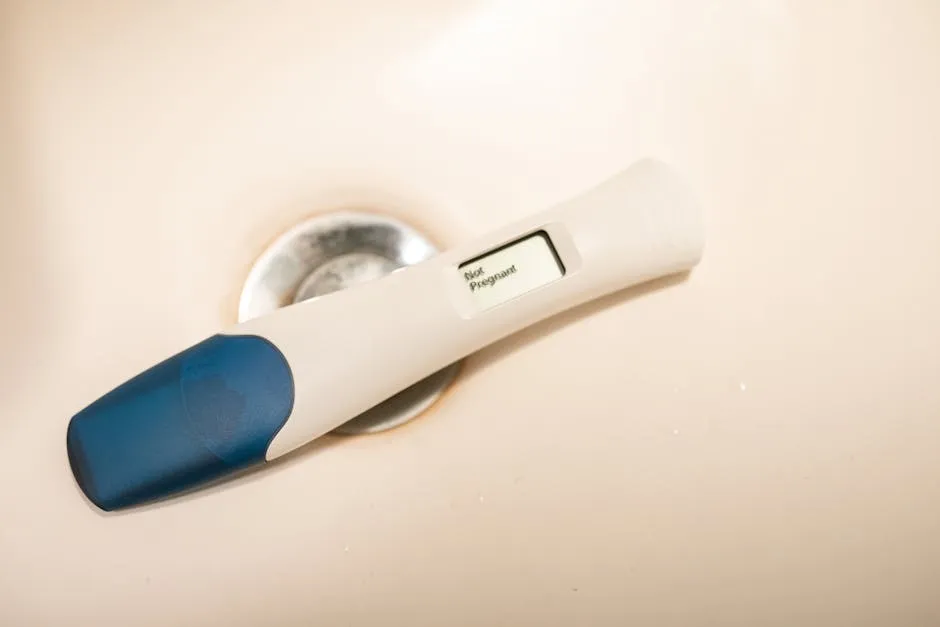
Why Is My Cum Clear? Understanding Semen Consistency and Health Implications
Introduction
Semen consistency is important for male reproductive health. Many men worry about clear or watery semen. Understanding what’s normal versus abnormal can help ease concerns. This knowledge is vital for overall reproductive wellness.
Summary and Overview
Semen is a mix of sperm and fluids from various glands. Typically, it appears thick and whitish. The consistency of semen can indicate sperm health and fertility levels. While clear semen can be a normal variation, it may also signal health issues. It’s essential to monitor changes and recognize when to seek medical advice.
Causes of Clear or Watery Semen
Low Sperm Count (Oligospermia)
Oligospermia is when sperm count drops below 15 million sperm per milliliter of semen. This condition can arise from several factors. Infections, such as sexually transmitted diseases, can lead to inflammation and reduced sperm production. Hormonal imbalances can also impact sperm count. Tumors in the testicles might hinder sperm production. Lifestyle factors like smoking, excessive alcohol, and drug use contribute as well. If you have low sperm count, fertility may be affected, complicating attempts to conceive. Regular check-ups and open discussions with a healthcare provider can address these concerns effectively.

To support your reproductive health, consider adding a Zinc Supplement to your routine. Zinc is crucial for sperm production and can help maintain healthy testosterone levels, ensuring your reproductive system operates at its best.
Frequent Ejaculation
Frequent sexual activity or masturbation can lead to thinner semen. When you ejaculate multiple times in a short period, your body may not have enough time to produce a full volume of semen. Each ejaculation depletes the sperm supply. As a result, the semen can appear more watery and less viscous than usual.
The male body takes time to replenish its sperm count. Typically, it can take a few days for sperm to regenerate fully. If you find yourself ejaculating multiple times daily, you might notice a change in semen consistency. This is usually nothing to worry about. However, if the watery semen persists, it could be a sign that your body needs a break to recover. Taking a short hiatus from sexual activity may help restore semen quality.

Zinc Deficiency
Zinc plays a vital role in sperm production and overall male reproductive health. This essential mineral supports testosterone levels, sperm motility, and the overall quality of semen. A lack of zinc can lead to lower sperm counts and changes in semen consistency, potentially causing it to appear thinner or clearer.
You can find zinc in various foods. Oysters are particularly rich in zinc, but red meat, poultry, beans, nuts, and whole grains are also good sources. If your diet lacks these foods, you might be at risk for a deficiency. Symptoms of low zinc could include not just changes in semen but also fatigue and weakened immune function. Addressing any deficiencies through diet or supplements can improve your reproductive health and semen quality.

If you’re looking for a delicious source of zinc, consider adding Canned Oysters to your pantry. They’re not only tasty but also packed with nutrients that can give your sperm production a boost!
Retrograde Ejaculation
Retrograde ejaculation occurs when semen enters the bladder instead of being expelled from the penis during ejaculation. This condition can lead to thinner, less concentrated semen. It happens due to a failure of the bladder neck to close properly during orgasm.
While retrograde ejaculation is not harmful, it can affect fertility. Men experiencing this may notice that their semen appears clear or less voluminous. It often results from previous surgeries, nerve damage, or certain medications. If you suspect you have this condition and wish to conceive, consulting a fertility specialist can provide options to manage the situation effectively. Understanding the implications of retrograde ejaculation can help you make informed decisions regarding your reproductive health.
Pre-Ejaculation Fluid
Pre-ejaculation fluid, often called pre-cum, is a clear fluid released before ejaculation. This fluid serves a few important functions. It helps lubricate the urethra and neutralizes acidity to protect sperm. While it might seem similar to ejaculate, pre-ejaculation fluid differs significantly.
One key difference is its composition. Pre-ejaculation fluid usually contains few to no sperm. This means that while it can aid in arousal and preparation for sexual activity, it’s not primarily associated with fertilization. However, in some cases, residual sperm from a previous ejaculation may linger in the urethra. This can lead to a small chance of pregnancy, but the chances are generally low. Understanding this fluid’s role can help clarify concerns about fertility and sexual health.

Implications of Clear Semen
Understanding Fertility Impacts
Clear semen can raise questions about fertility, especially if it appears frequently. It’s important to understand that clear or watery semen often indicates a low sperm count, known as oligospermia. The World Health Organization defines this condition as having fewer than 15 million sperm per milliliter of semen.
While low sperm count can complicate conception, it doesn’t always equate to infertility. Many men with low sperm counts can still father children. However, the reduced sperm presence may make conception efforts more challenging. Factors contributing to low sperm count include hormonal imbalances, infections, and lifestyle choices like diet and exercise. If you’re trying to conceive and notice persistent changes, consulting a healthcare professional is advisable. They can provide valuable insights and potential solutions tailored to your needs.

When to Consult a Doctor
If you notice persistent watery semen, it’s time to take action. While occasional changes might not signal serious issues, some symptoms warrant a doctor’s visit. Look out for discolored semen, especially if it appears pink, yellow, or green. These colors can indicate underlying health problems, such as infections or hormonal imbalances.
Pain during ejaculation or urination is another red flag. If you experience discomfort, don’t ignore it. It’s essential to consult a healthcare professional. They can help determine the cause of your symptoms and provide the appropriate care.
Consider visiting a fertility specialist if you’re trying to conceive. A semen analysis can assess sperm count and overall health. This evaluation is crucial for understanding your reproductive capabilities and addressing any issues that may arise.
Taking these steps ensures you prioritize your health and well-being.

Treatment Options for Clear Semen
Lifestyle Changes
Making simple lifestyle adjustments can significantly enhance semen quality. Start by focusing on your diet. Incorporate foods rich in antioxidants, vitamins, and minerals. Leafy greens, nuts, and fruits can contribute positively. Pay special attention to zinc, as it’s vital for sperm health. Foods like oysters, red meat, and legumes are excellent sources.
Regular exercise can also make a difference. Aim for at least 30 minutes of physical activity most days. This not only boosts circulation but also helps maintain a healthy weight, which is crucial for hormone balance.
Lastly, reducing alcohol and tobacco use is important. Both can negatively impact sperm production and overall reproductive health. Making these changes can lead to noticeable improvements in your semen consistency and fertility.

For those looking to enhance their fitness game, consider investing in a Fitness Tracker. It’s a great way to monitor your activity levels and encourage a more active lifestyle, which is beneficial for your overall health.
Medical Interventions
If lifestyle changes alone don’t yield results, consider medical options. Hormonal therapies can address imbalances that affect sperm production. If an infection is present, antibiotics may be necessary to clear it up.
Consulting a healthcare professional is essential for personalized treatment plans. They’ll evaluate your specific situation and recommend the most effective interventions. Regular follow-ups can also help track your progress and make necessary adjustments.
By being proactive about your health, you can enhance your chances of achieving optimal reproductive health and semen quality.

Conclusion
Clear semen can be surprising, but it’s often normal. Many factors contribute to its appearance, including hydration and frequency of ejaculation. However, if you notice persistent changes, it could signal underlying issues, like low sperm count or infections. It’s essential to prioritize your reproductive health. Regular check-ups with a healthcare provider can help identify any concerns early. Remember, maintaining an open dialogue about your reproductive health is crucial. Don’t hesitate to seek advice or assistance if something feels off.
FAQs
Is clear semen normal?
Clear semen can be normal; however, it might also indicate low sperm count or other health issues. Monitoring changes is important.
Can frequent ejaculation cause watery semen?
Yes, frequent ejaculation can lead to thinner semen. Your body needs time to replenish sperm supply, affecting consistency.
What does it mean if my semen is yellow or discolored?
Discolored semen may indicate health problems. Yellow or green hues can suggest infections or urinary issues, while pink may signal bleeding.
Should I be concerned about low sperm count?
Low sperm count can impact fertility. It’s important to consult with a healthcare provider if you’re trying to conceive and experience concerns.
How can I improve my sperm health?
To enhance sperm quality, consider lifestyle changes. Eat a balanced diet rich in vitamins, exercise regularly, manage stress, and avoid smoking and excessive alcohol.
When should I see a doctor about semen changes?
Consult a doctor if you notice persistent watery semen, discolored semen, or experience pain during ejaculation. These symptoms may require evaluation.
Can diet affect semen consistency?
Yes, nutrition plays a significant role in semen quality. Consuming foods high in zinc and antioxidants can positively influence sperm health and consistency.
Please let us know what you think about our content by leaving a comment down below!
Thank you for reading till here 🙂
And if you’re looking to stay hydrated while you work on your health, grab a stylish Reusable Water Bottle. Hydration is key to keeping your body functioning optimally!
All images from Pexels




